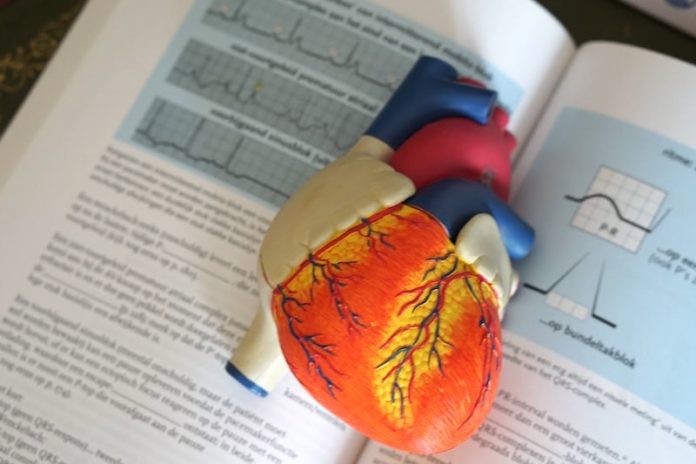
Scientists from Niguarda Hospital found heart inflammation occurred in about two out of every 1,000 people hospitalized with COVID-19, and was linked to more severe illness and complications in people with COVID-19, especially among people who also had pneumonia
The research is published in Circulation and was conducted by Enrico Ammirati et al.
Acute myocarditis, inflammation of the heart muscle typically triggered by a virus,
Myocarditis is a rare but serious condition that causes inflammation of the heart muscle.
It can weaken the heart and its electrical system, and it can make it difficult for the heart to pump blood. An episode of myocarditis may resolve on its own or with treatment or may result in long-lasting damage.
In the study, the team examined health data for almost 57,000 people who were hospitalized with COVID-19 from February 2020 until April 2021, and who received care at 23 hospitals across the United States and Europe.
A total of 54 people hospitalized with COVID-19 were identified as having definite or probable acute myocarditis, based upon results of heart muscle biopsy and/or magnetic resonance imaging.
All had confirmed cases of COVID-19 infection based upon standard laboratory testing, and none had received a COVID-19 vaccination prior to developing myocarditis.
The team found an estimated 2.4 per 1,000 people hospitalized for COVID-19 had heart inflammation.
Heart inflammation occurred more frequently in people who did not have pneumonia (57.4%) and was complicated by abnormal or unstable blood flow (hemodynamic instability) in 32% of cases.
The people found to have both COVID-19-related acute myocarditis and pneumonia had a mortality rate of 15.1%, compared to no deaths during hospitalization in the people who did not have pneumonia.
The people with pneumonia were older than those without pneumonia (average age of 45 years vs. 30 years, respectively).
One in five of the people with confirmed myocarditis (20.4%), most of whom also had pneumonia, needed mechanical support for circulation or died while in the hospital.
Twenty-one individuals (38.9%) had fulminant (severe and/or sudden) acute myocarditis, and due to shock, they needed immediate medication support and mechanical circulatory support.
The researchers note the potential rate of COVID-19 related myocarditis may be between 1.2-5.7 per 1,000 people hospitalized for COVID-19.
Some people were identified with possible myocarditis based on preliminary testing, yet they were not included in the final analysis because they did not meet all of the study’s protocols.
This analysis indicates that, although rare, hospitalized patients with acute myocarditis associated with COVID-19 infection have a much greater need for intensive care unit admission, in up to 70.5% of the cases, despite the average age of the individuals in the study being much younger than expected at 38 years old.
Sign up for our newsletter for more information about this topic.
If you care about Covid, please read studies about the cause of blood clots in people with severe COVID-19, and inexpensive heart drug that could help treat severe COVID-19.
For more information about Covid, please see recent studies about new way to prevent many COVID-19 variants, and results showing antibodies from COVID-19 vaccination almost 3 times higher than from infection.
Copyright © 2022 Knowridge Science Report. All rights reserved.



